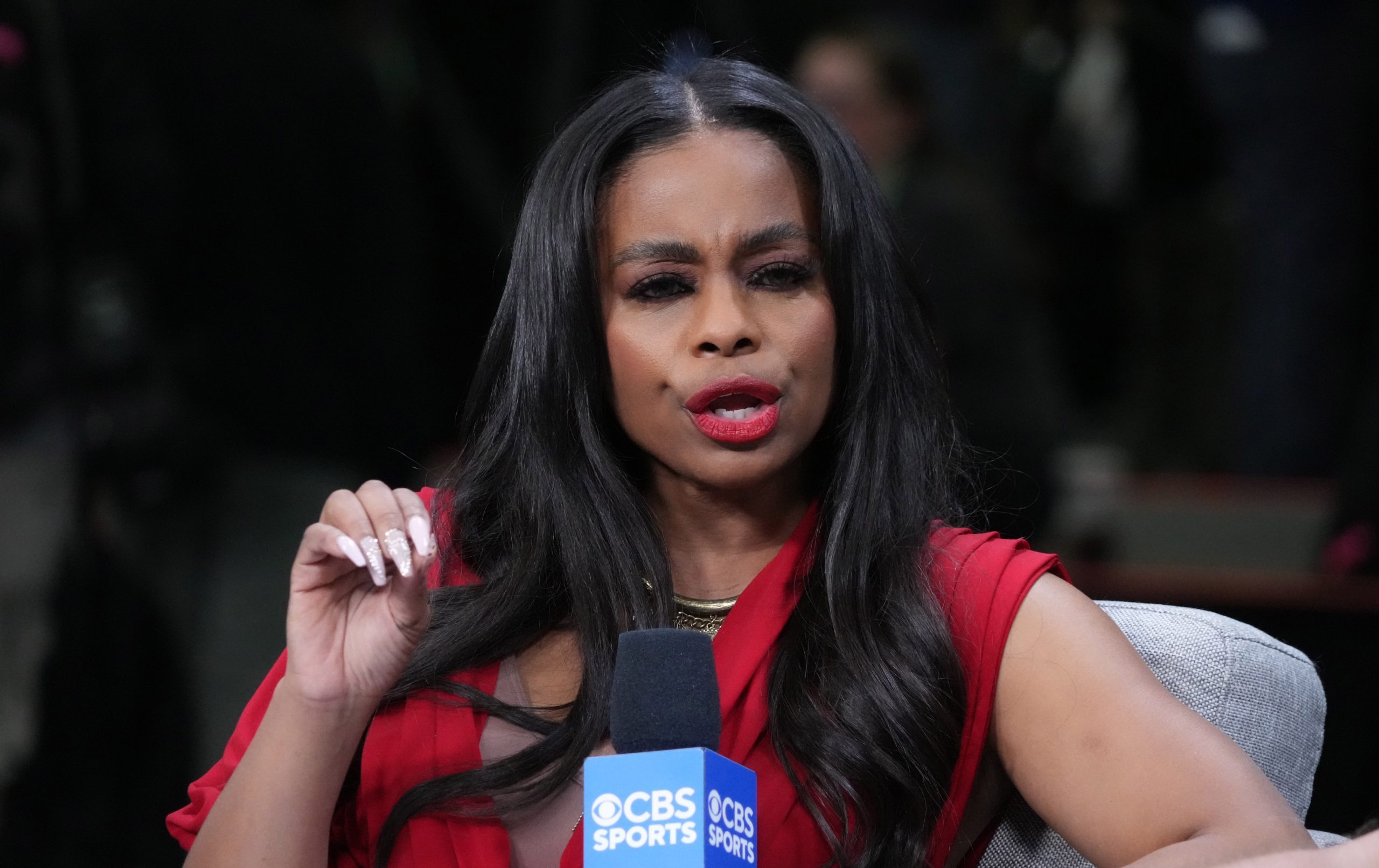“The media” is not and has never been a monolith. And one very surprising figure helped to illustrate that Saturday. That would be LSU women’s basketball coach Kim Mulkey.
Mulkey had previously gone on a preemptive attack against Washington Post reporter Kent Babb and threatened to sue the paper before they even published Babb’s piece. That was over what ultimately wound up being an interesting profile piece without much significantly threatening for Mulkey. And many noted that her all-out offensive before reading it (and insistence that she wouldn’t read it herself) helped illustrate the piece’s points.
But, after LSU’s 78-69 win over UCLA Saturday to advance to the Elite Eight, Mulkey had a different writer and media outlet in her sights. And this time around, she saw a lot more support for her stance from many other media members. Here’s some of what Mulkey had to say about a pregame column from Ben Bolch of The Los Angeles Times:
From the East coast to the West coast, LSU seems to be a target, Kim Mulkey is fine with trash talk, but she feels like the LA Times Ben Bolch crossed the line with vilifying her Tiger team in a preview piece of LSU and UCLA. pic.twitter.com/3vJLSNQTVR
— Michael Cauble (@Cauble) March 30, 2024
Here’s the start of that column, headlined “Commentary: UCLA-LSU is America’s sweethearts vs. its basketball villains“:
This isn’t just a basketball game, it’s a reckoning. Picking sides goes well beyond school allegiance.
Do you prefer America’s sweethearts or its dirty debutantes? Milk and cookies or Louisiana hot sauce?
The team that wants to grow women’s basketball or the one seemingly hellbent on dividing it?
The coach who embraces reporters or the one who attacks them?
The tender star player or the one who taunts?
When UCLA plays defending national champion Louisiana State on Saturday at MVP Arena in the Sweet 16 of the Albany 2 Regional, the contrasts don’t stop with blue and purple.
And that column from Bolch took a ton of notable criticism from other media members. Here’s some of that:
Kim Mulkey is now teeing off on the LA Times for this column: https://t.co/wT9ntqpKl1
— Nicole Auerbach (@NicoleAuerbach) March 30, 2024
The language in this column is highly problematic. https://t.co/smpbrnjDgs
— mike freeman (@mikefreemanNFL) March 30, 2024
my brain is MELTING reading this. how did the @latimes let this publish?! https://t.co/Fu6mJabNhA
— Lindsay Schnell (@Lindsay_Schnell) March 30, 2024
https://t.co/T1f21hBgzC pic.twitter.com/t3yvsUNCHh
— Maggie Hendricks (@maggiehendricks) March 30, 2024
"There are some things in this article you should be offended by as women. It was so sexist and they don't even know it."
Wrote some more after Kim Mulkey criticized an LA Times column.https://t.co/5Vs82Y1q06
— Adam (@AdamDBurruss) March 30, 2024
UCLA coach Cori Close even apologized for retweeting this:
Regarding the Los Angeles Times column. pic.twitter.com/kzZThRTigt
— Cori Close (@CoachCoriClose) March 30, 2024
There are several things to consider here. One is that “villain” talk itself is not inherently bad. Indeed, LSU stars like Angel Reese have somewhat embraced that label, as have local columnists. Villains are often a matter of perception, and that alone wouldn’t have been that notable here.
And homerism from local media members is far from new. And that often includes building up the local program’s perceived best attributes and spotlighting the perceived worst attributes of the opponent. Indeed, this dates back more than a century, but gets more attention now thanks to the internet making it possible to read local journalism from other areas quickly.
But with all that said, some of the particular language Bolch chose (perhaps “dirty debutantes” in particular) made his piece both highly personal and highly problematic. He brought in at least potentially-perceived racial angles, and managed to get much of a sports media world that was recently criticizing Mulkey over her preemptive defense against The Washington Post (which produced a much fairer piece) on board with her media criticism here. And while there really isn’t a unified “media” overall, Bolch’s column here made the world much more difficult for media members who have legitimate things to take Mulkey to task for, as he provided her with something she can cite as an example of an “out-to-get-me media.”
Criticizing Mulkey for her approach to the Post piece before it was even published is more than fair. And it’s not necessarily wrong to contrast that with a media-welcoming coach, as Bolch says UCLA’s Cori Close is. But when Bolch widened his sights to the entire LSU program, and brought in bizarre and personal discussions (such as his complaints against Angel Reese’s in-game trash talk) that have little to nothing to do with Mulkey, he gave her ammunition that even her critics can’t take issue with. And the charged language like “dirty debutantes” is particularly absurd, and that gave Mulkey a very easy target.
All in all, Bolch’s decisions here will likely make media coverage of Mulkey much more difficult. This was all set up to be a story of how bizarre Mulkey’s actions against the Post were, especially after their final story likely didn’t provide anything actionable. (It did certainly raise some overall questions about Mulkey, and about her defenders, but there was seemingly nothing she could sue over, or really even highly complain about.)
But one Los Angeles Times columnist who did not spend years reporting this story had far less actual ammunition. And yet, he shot it off much more irresponsibly, bolstering Mulkey’s narrative of an out-to-get-her media. Again, there’s no overarching “the media,” and no one outside the LAT can have a particular impact on how Bolch does his job. But his actions here certainly helped out those who do like to criticize “the media,” including Mulkey.
[Michael Cauble on Twitter/X]





